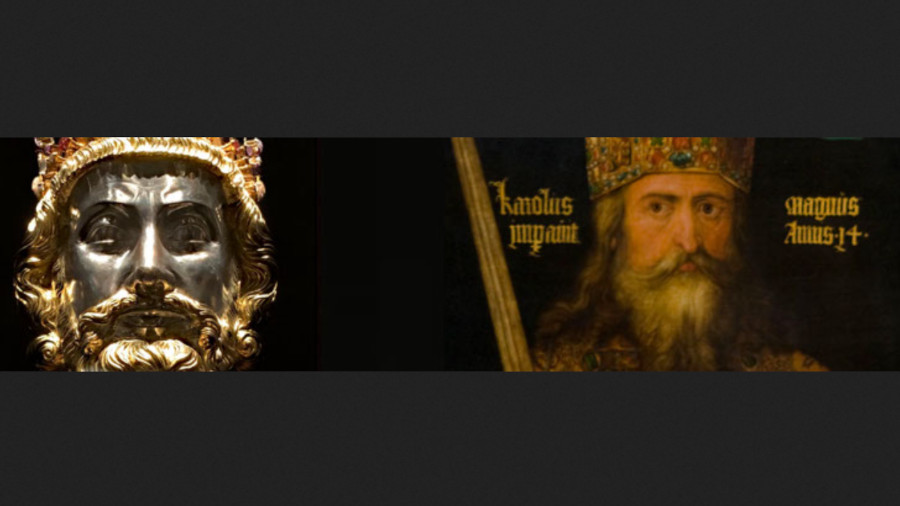The preservation of traditions based on the epic of Emperor Charlemagne is the driving force behind the CAROLUS research project. Emanuele Arioli, researcher in the Department of Catalan Studies, received an ERC Starting Grant to lead the project.

After his death, Charlemagne left behind a true legend: since the 9th century, tales of his exploits alongside his greatest heroes, the Twelve Peers of France, spread throughout Europe. During the Renaissance, this epic was carried by Spanish and Portuguese colonisers to the New World, where it was adapted to different cultures and intertwined with local myths. Although almost extinct on the Old Continent, it survives in various forms in remote parts of Latin America and on islands of the African continent. It is, however, an intangible heritage threatened with extinction that must be preserved before it disappears forever.
The CAROLUS research project, led by Department of Catalan Studies researcher Emanuele Arioli, focuses on the survival of the epic of Charlemagne and his warriors in the traditions of various continents. The fieldwork to collect these traditions will be accompanied by research into their genesis and impact, complemented by interdisciplinary studies. This survival is manifested in popular forms as diverse as the "opera dei pupi" (puppet theatre) of Sicily, the Iberian "romancero", Moor and Christian pageants, and other forms of traditional theatre, such as the "tchiloli" and the "Auto de Floripes" in the archipelago of São Tomé and Príncipe, near Gabon.
To carry out the project, a dual methodology will be used. On the one hand, a diachronic approach will be adopted to establish the links between each local expression and the ancient models from which it derives. On the other hand, a synchronic and comparative methodology will be used, inventorying, classifying, and comparing the forms and contents observed in each of the selected cultural and linguistic areas.
This research represents a perspective spanning a full millennium (from the 11th to the 21st century) and draws on literature, the performing arts, philology, sociology, ethnology, and anthropology to explore a corpus that blends declamation, song, and psalmody with live performance.
It is, therefore, a trans-secular, transdisciplinary, and transmedia research at the intersection of archival culture and creation, of oral and written tradition, and of scholarly and popular tradition.
This research, funded by an ERC Starting Grant, also has a transcultural dimension, as it spans three continents (Europe, South America, and Africa) and encompasses various linguistic fields. The working languages will be Latin and Old French (the languages of the medieval texts) and Italian, Spanish, Catalan, and Portuguese in their local variants, as well as various creole languages. The project includes postdoctoral researcher Raísa França Bastos, who will analyse the "cavalhadas" of Brazil, and predoctoral researcher Tiphanie Torres, who will study the "opera dei pupi" of Sicily. In 2026, two new positions will be offered to pursue PhDs on other traditions of the Iberian Peninsula and Latin America.






